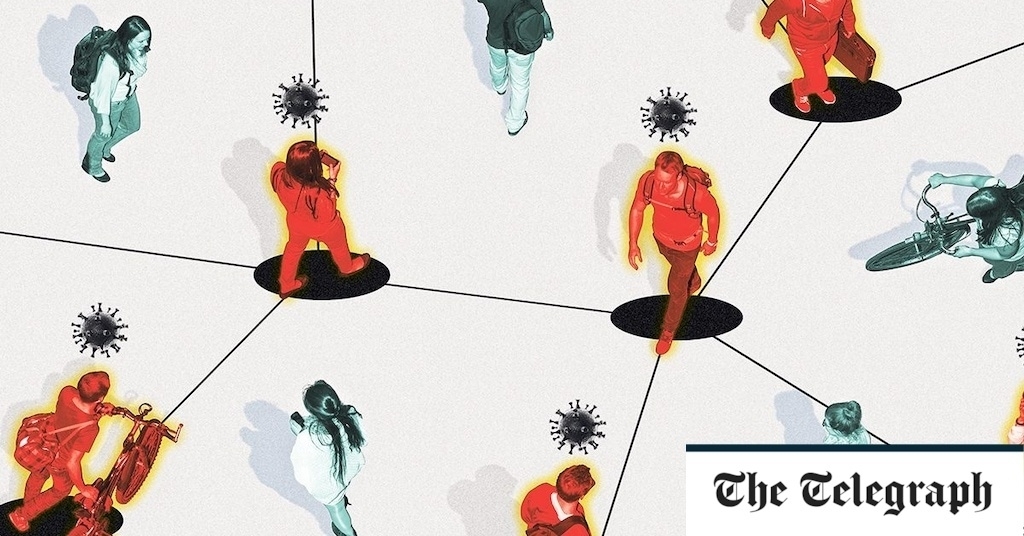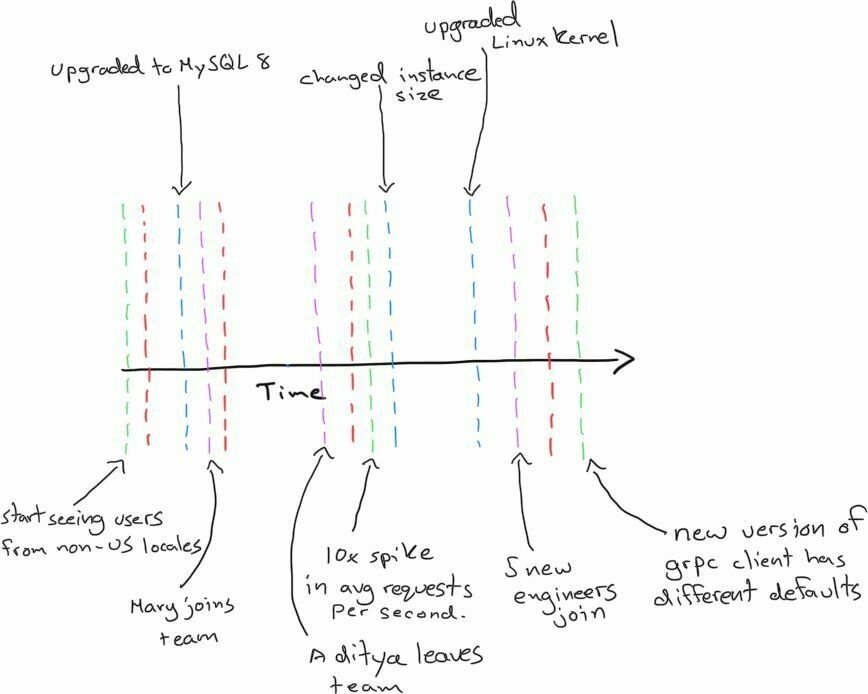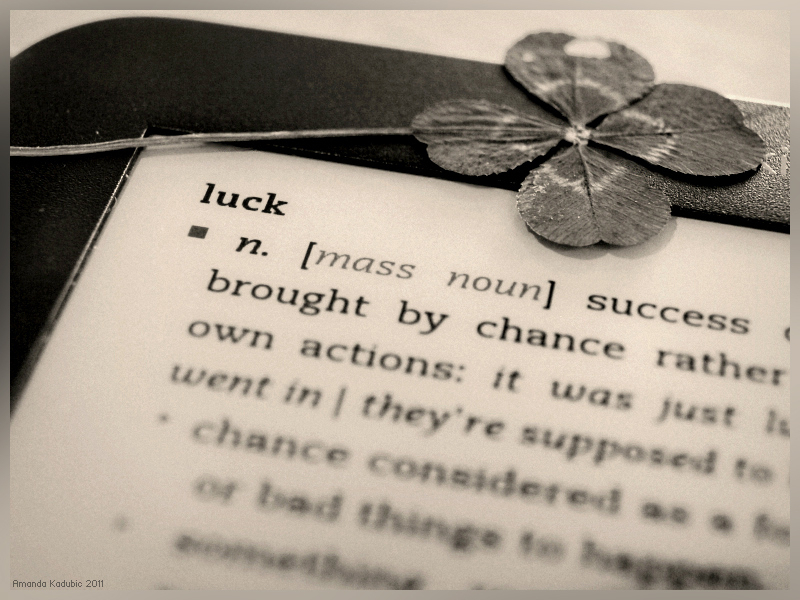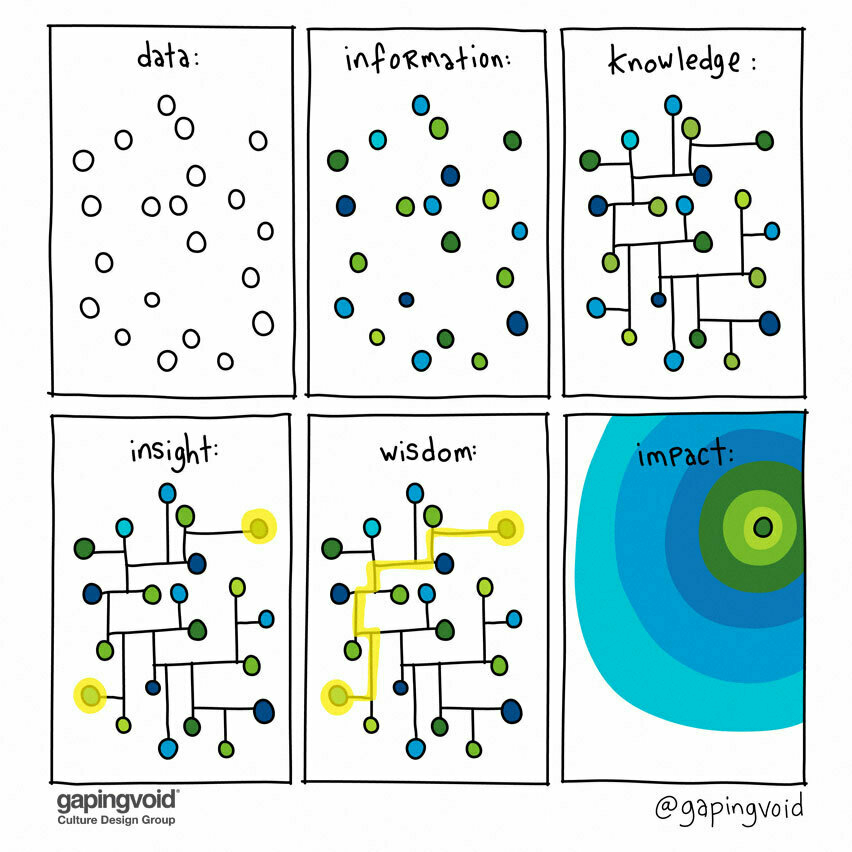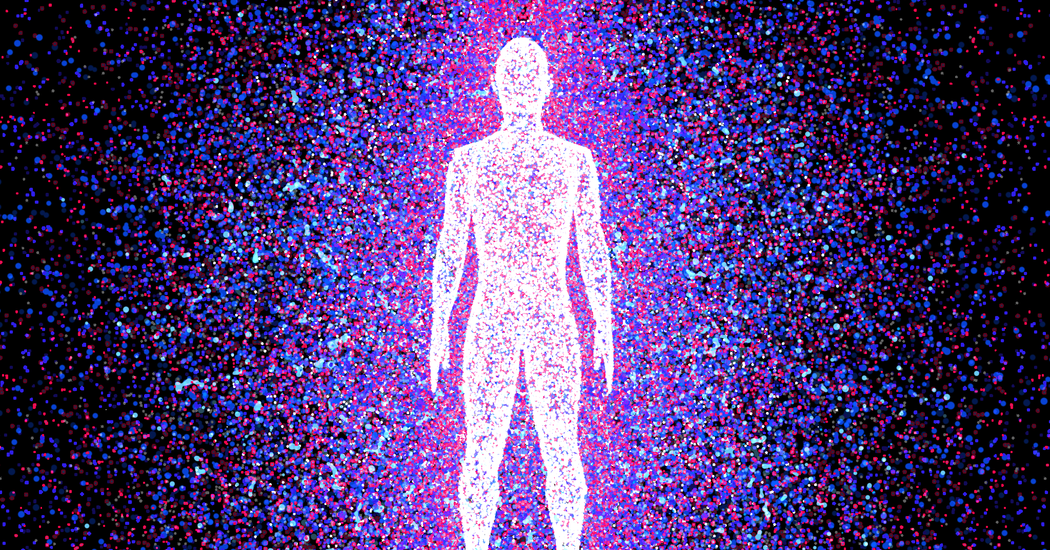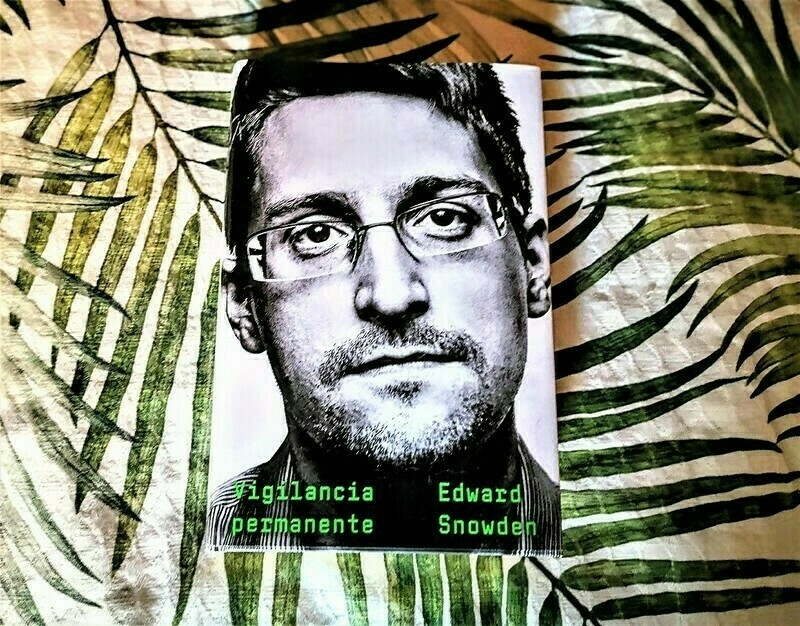Covid immunity and medical breakthroughs
It seems like we’re learning a lot in a very short space of time about viruses and immunity. Happily, this might lead to breakthroughs in all sorts of areas.
We tend to think of immunity as something of an absolute – either we’re immune to a virus, or we’re not. But that hides a world of complications, says Danny Altmann, professor of medicine and immunology at Imperial College London. The genes that control our immunity are among the most diverse in the human body, he says, differing hugely from person to person.Source: Why some people keep getting Covid – and others never at all | The Telegraph[…]
But what explains this natural immunity? The most likely theory is that these people’s immune systems have already been exposed to similar viruses, years or decades earlier. Sars-Cov-2 is one of a family of seven human coronaviruses, most of which cause the common cold. All of these viruses look fairly similar. When your T-cells learn how to fight one, they get better at fighting them all, it is thought.
Another, less well-researched answer lies in our genes. Some people might simply be born with an immunity to certain viruses, scientists suspect.
[…]
If it turns out that some people are indeed naturally immune to Covid, it’s wonderful news for them. But it might also help the rest of us, speeding up development of a pan-coronavirus vaccine capable of defeating any variant. The current generation of Covid vaccines were all designed to target the spike protein, on the virus’s outer edge. But the spike protein also changes frequently, each time the virus mutates. This means vaccines are slightly less effective against each new variant.
But natural immunity appears to work differently. In the UCL trial, researchers looked carefully at the blood of those volunteers who seemed to have pre-existing immunity to the virus. Rather than targeting the spike protein, their T-cells were targeting proteins at the centre of the virus. These proteins are much less likely to change from mutation to mutation. In fact, they tend to be found in most coronaviruses, not just Sars-Cov-2. If a vaccine could be built to target these inner proteins, it might just be able to defeat all variants – as well as a range of other coronaviruses.
Jam tomorrow
The key to success traditionally has been to play the long game. If the system is rigged in your favour, that works. If it's not, then it's always "jam tomorrow".
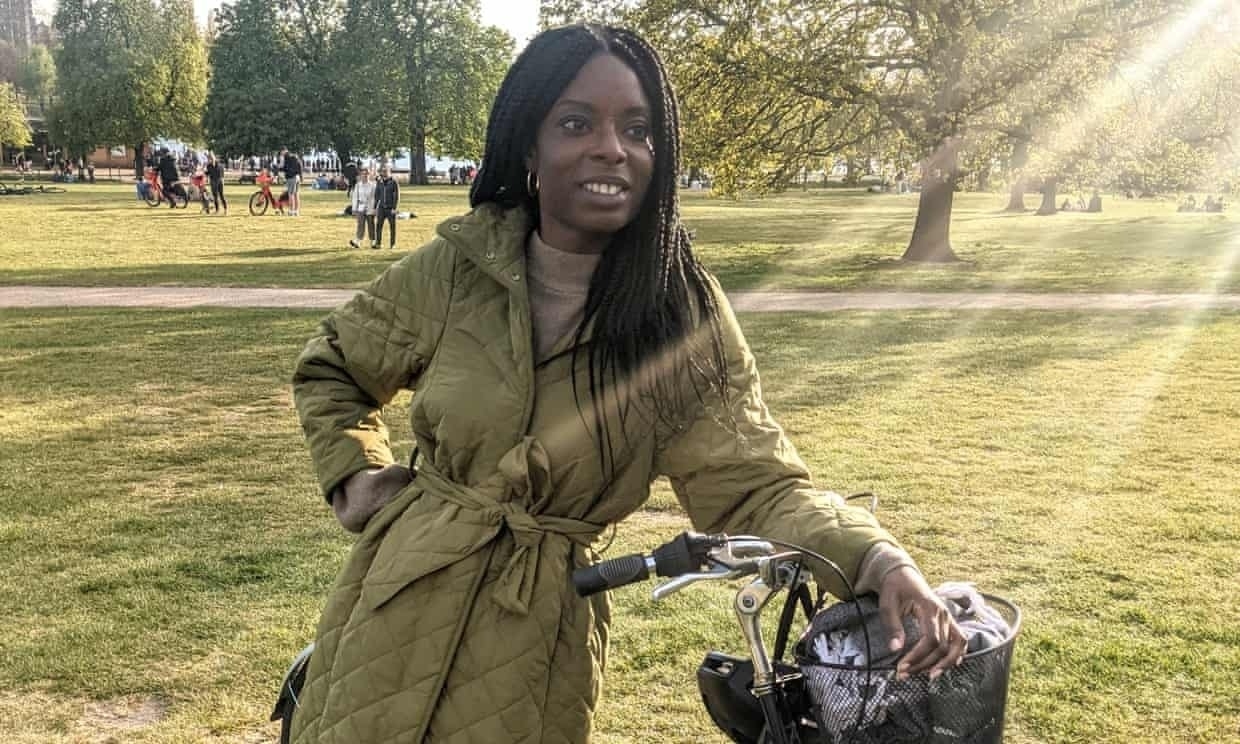
Where does the idea that we can achieve, or should even be aiming for, endless productivity come from? Arguably we’ve been barrelling towards this conclusion for as long as capitalism has existed, but the technological advances of the past few decades have further eroded the barriers around work that stop it seeping into every aspect of our lives. There is a widespread cultural fetishisation of productivity, with overwork framed as a virtue by employers desperate to find ways to motivate a workforce for whom the traditional rewards – a decent salary, pension, job security – often no longer apply.Source: This year, I stopped being productive. Why is it so hard to come to terms with that? | The Guardian
Everyone has something to teach
As someone who is apparently in a microgeneration between Generation X and Millennials, I feel constantly the tension between the “old ways” of doing things and the “throwing things against the wall to see what sticks” approach.
This article frames the issue nicely: everyone has something to teach, no matter whether you’re the person with lots of experience to share, or the person with the new approach.
Gaining experience takes time, effort, and often comes at the price of making painful mistakes. You don’t want to let those lessons go. You want them to mean something, to help you from making the same painful mistakes again. To help others from making the same mistakes you made. So it will always be the case that those with the most experience – and the good, smart, accurate wisdom that comes from it – will be the least willing to adapt their views as the world evolves.Source: Experts From A World That No Longer Exists · Collaborative FundNeither should be the case, because every generation cycles through the same process. Today’s older generation once understood the world better than their parents, who scoffed at them. Today’s younger generation will one day be stuck in the antiquated norms of their past, and their kids will scoff at them. I can imagine my son in 80 years screaming, “Get off my metaverse lawn!”
One takeaway from this is that no age has a monopoly on insight, and different levels of experience offer different kinds of lessons. Vishal Khandelwal recently wrote that old guys don’t understand tech, but young guys don’t understand risk. Another way to put it is: everyone has something to teach.
Image: CC BY Tea, two sugars
Ignore the sociotechnics at your peril
This post is focusing on technical teams looking after software. But it can also apply to anything where systems are being developed and/or maintained.
Each set of markers we added to our system provided new context to form assumptions and frame our thinking. Everything in the visualization existed whether we were looking or not. It becomes clear when looked at this way that each of these dimensions is inextricably linked. It’s impossible to think holistically about software without thinking about the operational environment, or the users of the system, or the people involved in building and maintaining it. These things come together to create another lens through which we can view the world.Source: Sociotechnical Lenses into Software Systems | Paul OsmanIt’s important to point out that the final image here is still incomplete. We’ll never fit all of the contexts into a single model. We could keep going, adding more and more context. A fascinating one, for example, would be marking the beginning of the COVID pandemic, when a team that perhaps was colocated started working remotely, and when stress and risk of burnout increased considerably. Otherwise, we’ll eventually include the whole world, but it’s interesting to continually zoom out and see how a new lens helps frame our perspectives.
[…]
Many organizations have adopted the practice of doing “post-mortems” or “retrospectives” after incidents. Retrospectives are great! Unfortunately, I think a lot of learning is left on the table by the adoption of template-driven processes that produce shallow understandings of what transpired. I’ve spoken about how I think we can improve this. There are also experts in the field who provide training and consulting in incident analysis. There are also communities and companies dedicated to helping you improve this practice.
Wealth is a product of luck
This seems obvious to me: that luck plays a great part in success. Well, serendipity, perhaps which can always be given a helping hand by elite networks and pushy parents…
The conventional answer is that we live in a meritocracy in which people are rewarded for their talent, intelligence, effort, and so on. Over time, many people think, this translates into the wealth distribution that we observe, although a healthy dose of luck can play a role.Source: If you’re so smart, why aren’t you rich? Turns out it’s just chance. | MIT Technology ReviewBut there is a problem with this idea: while wealth distribution follows a power law, the distribution of human skills generally follows a normal distribution that is symmetric about an average value. For example, intelligence, as measured by IQ tests, follows this pattern. Average IQ is 100, but nobody has an IQ of 1,000 or 10,000.
The same is true of effort, as measured by hours worked. Some people work more hours than average and some work less, but nobody works a billion times more hours than anybody else.
And yet when it comes to the rewards for this work, some people do have billions of times more wealth than other people. What’s more, numerous studies have shown that the wealthiest people are generally not the most talented by other measures.
What factors, then, determine how individuals become wealthy? Could it be that chance plays a bigger role than anybody expected? And how can these factors, whatever they are, be exploited to make the world a better and fairer place?
Image: CC BY-ND fearthekumquat
Unsolicited advice might not be so bad after all?
I’ve followed Tressie McMillan Cottom on Twitter ever since she did a keynote for ALT a few years ago. In this article for The New York Times, she talks about ‘advice culture’.
Cottom is wonderfully forthright in her interactions on Twitter, so I was expecting her to rail against advice culture. Instead, she talks about it as a form of small talk, and (I suppose) a form of necessary social glue.
In the social media era, advice culture feels bigger and more pervasive than ever. After all, what is social media if not the gamification of advice? Every time we post something on Facebook or Twitter or Instagram, we are implicitly asking others to make a judgment of us. And we find ourselves unable to understand why someone would post or share an experience if not to solicit our evaluation. That is what “likes” and comments and “friending” has done to our brains...Source: Why Everyone Is Always Giving Unsolicited Advice | The New York TimesAdvice culture is so pervasive that it must serve some other function, do something more than assuage insecurities or performing status. Sociologists generally agree that advice is up there with small talk for how it facilitates human connection between strangers. But I recently began thinking advice is no longer a mere subset of small talk but has become our culture’s default common language. Advice is small talk. The decline of social associations like the Rotary Club and the bowling leagues not only weakened our connections to community; it also atrophied our linguistic tool kit.
Peeking around corners with holographic cameras
It's amazing to think that 10 years ago we thought we were only a few years away from fully autonomous vehicles. Even now, we're in the early stages of actually making them safe.
Blind corners have long troubled drivers, but they might not pose such a hazard for much longer. Researchers at Northwestern University have developed a new holographic camera technology that can peer around corners by reconstructing scattered light waves, quickly enough to spot fast-moving objects like cars or pedestrians.
When light strikes an object, it scatters, and some of that finds its way to our retinas, or the sensors of a camera, allowing the object to be seen. Of course, that means we can’t see objects behind other objects, or through scattering media like fog or skin. But there might be a way to use the scattering of light off multiple objects to see around corners.
Position a mirror just right, and you can see objects around corners. Even without a mirror, that principle still holds true – it’s just that the secondary object scatters the light too much for us to reconstruct the target. But an emerging technology called non-line-of-sight (NLoS) imaging can do just that.
NLoS systems work by beaming light out, which bounces off a surface, strikes an object and bounces back to the surface, then back to a sensor. Algorithms can then create an image of the object around a corner. As you might expect however, images reconstructed in this way can often be low resolution, or take too long to process.
Source: Holographic camera reconstructs objects around corners in milliseconds | New Atlas
The impact of a plant-based diet on migraines
Aged 18, I was rejected at the last hurdle from the Royal Air Force for a scholarship which would have paid for my university tuition. The reason? I’d just started suffering from migraines.
There are lots of different types of triggers, but common to all types is stress. That’s not so good if you’re looking to be employed in Fighter Command.
In many ways, I dodged a bullet (literally and metaphorically!) by not joining the RAF, but migraines have been a constant struggle. In the past few years I’ve had a lot fewer of them, something I put down to reducing my stress levels and taking an L-Theanine supplement every day.
However, this article focuses on the benefits of a plant-based diet for migraine sufferers. I stopped eating meat in 2017 and then eliminated fish too, turning vegetarian in January of this year. It looks like that might have been a great idea not only from an animal welfare point of view, but in terms of my own welfare too!
Health experts are calling for more research into diet and migraines after doctors revealed a patient who had suffered severe and debilitating headaches for more than a decade completely eliminated them after adopting a plant-based diet.Source: Man’s severe migraines ‘completely eliminated’ on plant-based diet | Nutrition | The GuardianHe had tried prescribed medication, yoga and meditation, and cut out potential trigger foods in an effort to reduce the severity and frequency of his severe headaches – but nothing worked. The migraines made it almost impossible to perform his job, he said.
But within a month of starting a plant-based diet that included lots of dark-green leafy vegetables, his migraines disappeared. The man has not had a migraine in more than seven years, and cannot remember the last time he had a headache. The case was reported in the journal BMJ Case Reports.
Information is not knowledge (and knowledge is not wisdom)
Some reflections by Nick Milton on why knowledge management within organisations is so poor. If I were him, I would have included the below illustration from gapingvoid as I think it illustrates his five points rather well.
Firstly much of the knowledge of the organisation is never codified as information.Source: Why you can’t solve knowledge problems with information tools alone | Knoco Stories[…]
Secondly, a common problem (a corollary of the first) is that project knowledge may never have been recorded in project documents.
[…]
Thirdly, and a corollary to the first two, the vast majority of project information is not knowledge anyway. If you are relying on project documents as a source of knowledge, you will be relying on a very diluted source - a lot of noise and not much signal.
[…]
Fourthly, if there is codified knowledge in the project documents, it tends to be scattered across many documents and many projects.
[…]
Finally, many of the knowledge problems are cultural. People are incentivised to rush on to the next job rather than to spend time reflecting on lessons, no matter how important.
Start Often Finish rArely
I love this, and along with this post about the joy of watching films in black and white, led to me starting a new art project.
SOFA is the name of a hacker/art collective, and also the name of the principle upon which the club was founded.Source: 🛋 SOFAThe point of SOFA club is to start as many things
as possibleas you have the ability, interest, and capacity to, with no regard or goal whatsoever for finishing those projects.[…]
You can be finished with your project whenever you decide to be done with it. And “done” can mean anything you want it to be. Whose standards of completion or perfection are you holding yourself to anyway? Forget about those! Something is done when you say it is. When it’s no longer interesting. When you’ve gotten a sufficient amount of entertainment and experience from it. When you’ve learned enough from it. Whatever, whenever. Done is what you say it is.
Pain, suffering, and scuba diving
In this post, Derek Sivers shares his experience of a panic attack during a scuba diving trip and being calmed down by his instructor. He then subsequently used the same technique to help someone else who wasn’t OK on a later trip.
Pain and suffering are part of the human experience. For anyone ask “why me?” doesn’t make sense. There are those who dissimulate and those who don’t, but underneath it all there is hardship.
There is less stigma around therapy than there used to be, but I haven’t met anyone (me included!) who hasn’t transformed their life for the better after going through some form of counselling.
I learned a few lessons from this experience.Source: scuba, panic, empathy | Derek SiversThere are things in life we think won’t apply to us: Panic. Addiction. Depression.
I thought that was for other people. I thought I wasn’t that type. Why is this happening to me?
But I learned so much empathy that day. These things that only seem to happen to other people can happen to me. We’re not so different. It helps me recognize it in others, and be most helpful by remembering that feeling.
I imagine this is why people, who have been through really hard times, become counselors.
That day also reinforced the power of imitation. My teacher calmed me down so well that it was best to just imitate him.
Introspections on timewasting
What I’ve learned over the years from my own experience is that what one person calls a “waste of time” is the complete opposite for someone else. It also has a temporal/timing element to it, as well, I’d argue.
For example, I spent an inordinate amount of time on Twitter between 2007 and 2012, but this paid off massively in terms of my career. I learned a lot and made really valuable connections in the process. My wife thought it was a waste of my time. These days, it absolutely would be.
In this post, the author reflects on why they “waste time” and look at different reasons as well as various ways they’ve sought to combat it. As someone who’s been through therapy, I’d suggest that there’s always something below the surface that needs a skilled professional to draw out.
That’s what seems missing here.
I spend way too much time on reddit, hacker news, twitter, feedly, coinbase, robinhood, email, etc. I’d like to spend time on things that are more meaningful - chess, digital painting, side projects, reading, video games, exercising, meditating, etc. This has been a problem for years.Source: Scattered Thoughts on Why I Waste My Own Time | Just a blogThis post is only slightly adapted from my personal notes, so excuse the lack of structure; I didn’t want to try to twist this jumble of thoughts into a narrative.
Image: CC BY mysza831
Should teenagers be using social media? We probably already know the answer
While I’m not a fan of Nicholas Carr’s approach to technology (“is Google making us stupid?") I do have sympathy with Cal Newport’s more nuanced and considered approach.
Writing in The New Yorker, Newport considers whether we should be allowing teenagers to use social media at all. By this, he doesn’t mean the ‘social internet’, which I explore further in this post.
Our son turns 15 soon and while we’ve grudgingly allowed him to use WhatsApp (I don’t use any Facebook Meta products) he isn’t allowed an Instagram, Twitter, or TikTok account. Digital parenting is a thing.
I’m not sure, however, that we should be so quick to give up on interrogating the necessity of these technologies in our lives, especially when they impact the well-being of our children. In an attempt to keep this part of the conversation alive, I reached out to four academic experts—selected from both sides of the ongoing debate about the harm caused by these platforms—and asked them, with little preamble or instruction, the question missing from so much of the recent coverage of the Facebook revelations: Should teen-agers use social media? I wasn’t expecting a consensus response, but I thought it was important, at the very least, to define the boundaries of the current landscape of expert opinion on this critical issue.Source: The Question We’ve Stopped Asking About Teen-Agers and Social Media | The New Yorker[…]
For a particularly dispiriting case study of how long it sometimes takes to establish definitive causation between behaviors and negative outcomes, consider the effort involved in connecting smoking to lung cancer. The first major study showing a statistical correlation between cigarettes and cancer, authored by Herbert Lombard and Carl Doering of the Massachusetts Department of Public Health and the Harvard School of Public Health, was published in 1928. I recently came across an article in the archives of The Atlantic from 1956—nearly thirty years later—in which the author was still trying to convince skeptics who were unhappy with the types of confounding factors that are unavoidable in scientific studies. “If it has not been proved that tobacco is guilty of causing cancer of the lung,” the article pleads, “it has certainly been shown to have been on the scene of the crime.”
[...]What is obvious, however, is that regardless of what answers we end up with, we need to keep debating these fundamental questions. As Zuckerberg emphasized in his defensive post, he wants us to concede that his products are inevitable, and that we have no choice but to move on to discussing their features and safeguards. We might think we’re really sticking it to these social-media giants when we skewer their leaders in congressional hearings, or write scathing commentary pieces about the shortcomings of their moderation policies, but, in some sense, this response provides a reprieve because it sidesteps the conversation that these companies are trying hardest to avoid: the conversation about whether, in the end, the buzzy, digital baubles they offer are really worth all the trouble they’re creating.
Freedom for the few vs. freedom for the many
My wife and I were talking about lockdowns yesterday given that we’re due to be travelling to the Netherlands next month and they’ve announced a partial lockdown. I can’t imagine something similar would be accepted in the UK — by which I mean it would probably be difficult to enforce.
Austria are imposing a nationwide lockdown for unvaccinated people. This sounds like a good solution for those vaccinated, but (a) there’s non-conspiracy reasons why people aren’t vaccinated, and (b) whatever means are used to prove vaccinated will be instantly forged.
It’s a problem, for sure, how to protect the freedoms of everyone.

Austria will impose a nationwide lockdown for people who have not been vaccinated against COVID-19, becoming the first country in the world to do so, Chancellor Alexander Schallenberg announced on Friday.Source: Austria to declare nationwide lockdown for unvaccinated people | BNO News[…]
“A lockdown for the unvaccinated means one cannot leave one’s home unless one is going to work, shopping (for essentials), stretching one’s legs – exactly what we all had to suffer through in 2020,” Schallenberg said earlier, according to Reuters.
The lockdown for the unvaccinated has already been formally approved in Upper Austria, where restrictions have also been announced for the entire population. This includes a legal requirement to wear an FFP2 mask in all indoor public places and a ban on events for 3 weeks.
[…]
However, questions have been raised about the feasibility of a lockdown which applies to only a part of the population. “We don’t live in a police state and we can’t and don’t want to check every street corner,” Schallenberg said.
Games as a cultural, educational, and predictive force
As a gamer, I grow frustrated with people who don’t consider games to be an art form and vehicle for stories comparable with other cultural pursuits.
Take for example one of the biggest games of this year, the recently released Battlefield 2042. Not only is it a technical and cultural milestone, but it presents a plausible timeline for how things could go given our current trajectory: climate, migration, wars, you name it.
I highly recommend watching this 9-minute short film:2037
Humanity adapts to the new normal. Revolutions in energy, desert irrigation, hydraulic levees, and sea walls save coastal cities, reclaim farmland, and rebuild supply chains. Hope of finding stability leads to some nations re-opening their borders.
However, with no way to repatriate 1.2 billion people, No-Pats become a permanent fixture in all economic, military, and social policy making. Many No-Pats are still distrustful of the governments that exiled them and refuse calls to reassimilate. No-Pat leaders emerge, inspiring a new identity unbound to former nationality, drawing a line in the sand between the Old World and The New Normal. #WeAreNoPats becomes a rallying cry.
[embed]www.youtube.com/watch
Big Tech companies may change their names but they will not voluntarily change their economics
I based a good deal of Truth, Lies, and Digital Fluency, a talk I gave in NYC in December 2019, on the work of Shoshana Zuboff. Writing in The New York Times, she starts to get a bit more practical as to what we do about surveillance capitalism.
As Zuboff points out, Big Tech didn’t set out to cause the harms it has any more than fossil fuel companies set out to destroy the earth. The problem is that they are following economic incentives. They’ve found a metaphorical goldmine in hoovering up and selling personal data to advertisers.
Legislating for that core issue looks like it could be more fruitful in terms of long-term consequences. Other calls like “breaking up Big Tech” are the equivalent of rearranging the deckchairs on the Titanic.
Democratic societies riven by economic inequality, climate crisis, social exclusion, racism, public health emergency, and weakened institutions have a long climb toward healing. We can’t fix all our problems at once, but we won’t fix any of them, ever, unless we reclaim the sanctity of information integrity and trustworthy communications. The abdication of our information and communication spaces to surveillance capitalism has become the meta-crisis of every republic, because it obstructs solutions to all other crises.Source: You Are the Object of Facebook’s Secret Extraction Operation | The New York Times[…]
We can’t rid ourselves of later-stage social harms unless we outlaw their foundational economic causes. This means we move beyond the current focus on downstream issues such as content moderation and policing illegal content. Such “remedies” only treat the symptoms without challenging the illegitimacy of the human data extraction that funds private control over society’s information spaces. Similarly, structural solutions like “breaking up” the tech giants may be valuable in some cases, but they will not affect the underlying economic operations of surveillance capitalism.
Instead, discussions about regulating big tech should focus on the bedrock of surveillance economics: the secret extraction of human data from realms of life once called “private.” Remedies that focus on regulating extraction are content neutral. They do not threaten freedom of expression. Instead, they liberate social discourse and information flows from the “artificial selection” of profit-maximizing commercial operations that favor information corruption over integrity. They restore the sanctity of social communications and individual expression.
No secret extraction means no illegitimate concentrations of knowledge about people. No concentrations of knowledge means no targeting algorithms. No targeting means that corporations can no longer control and curate information flows and social speech or shape human behavior to favor their interests. Regulating extraction would eliminate the surveillance dividend and with it the financial incentives for surveillance.
Momentum over details
I subscribed to Laura Olin’s newsletter recently, and the first issue I received mentioned how the late Dave Graeber “liked to… write propped up in the bathtub or lying on the floor; that way, it didn’t feel like work”.
She also links to another newsletter issue by Kate McKean, which I quote below, about just getting on with things, keeping the momentum going, and not getting stuck with details. It reminds me of my collaborations this week (in a good way!)
Which leads me to my newest revelation: just write it down now! You can fix it later! Truly and honestly, you can fix it later. Do you know how many TKs are in my book right now? (TK is copyediting shorthand for I’ll fill it in later) Instead of trying figure out what day of the week it is in my book, it literally says “TK weekday.” I was in the middle of a scene when I realized one of the characters in it couldn’t physically be there at that time, so I deleted his name and wrote “TK some other guy” and kept going! I liked the scene! I’ll figure out that TK later! Or I will cut it! The words exist now, which means they can be edited, refined, deleted, kept. You’re going to edit your book five thousand times; you won’t notice one more. And for those of you who worry that’s going to add time to an already long and arduous process, well, I say that if it gets you to The End faster, even if you have to go back to all those TK’s, you’re that much better off.Source: How to Like What You Write | Kate McKean
Image: CC BY-NC-ND Alan Bloom
Aimless wandering in search of the unknown catalyst
It might not be too much of a stretch to describe Edward Snowden as a hero of mine. I’m not sure what he’s still doing in Russia, but the moral conviction it took to do what he did is staggering.
He writes in exile through a newsletter which is well worth subscribing to. In his most recent missive, he talks about lacking what he calls “origination energy”. On a much smaller level and more insignificant level, I lack this too — especially at this time of year.
So as the young people say, I feel seen.
For a long time now, I’ve wanted to write to you, but found myself unable. Not from illness—although that came and went—but because I refuse to put something in your inbox that I feel isn’t worth your time.Source: Cultural Revolutions | Edward SnowdenThe endless stream of events that the world provides to remark upon has the tendency to take on an almost physical weight, and robs me of what I can only describe as origination energy: the creative spark that empowers us not simply to do something, but to do something new. Without it, even the best of what I can produce feels derivative and workmanlike—good enough for government, perhaps, but not good enough for you.
I suspect you may know a similar struggle—you can tell me how you fight it below, if you like—but my only means for overcoming it is an aimless wandering in search of the unknown catalyst that might help me to refill my emptied well. Where once I might have had a good chance of walking away inspired by the empathy I felt while watching a sad, sad film, achieving such inspiration feels harder now, somehow. I have to search farther, and wander longer, across centuries of painting and music until at last, when passing by a dumpster, yesterday’s internet comment might suddenly pop into my head and blossom there, as if a poem. The thing—the artifact itself—doesn’t matter, so much as what it does for me—it enlivens me.
This, to me, is art.
Image CC BY-NC-ND: Antonio Marín Segovia
Surveillance vs working openly
Austin Kleon is famous for his book Show Your Work, something that our co-op references from time to time, as it backs up our belief in working openly.
However, as Kleon points out in this post, it doesn’t mean you need to livestream your creative process! For me, this is another example of the tension between being able to be a privacy advocate at the same time as a believer in sharing your work freely and openly.
It’s bad enough trying to create something when nobody’s watching — the worst trolls are the ones that live in your head!Source: You can’t create under surveillance | Austin KleonThe danger of sharing online is this ambient buildup of a feeling of being surveilled.
The feeling of being watched, or about to be watched.
You have to disconnect from that long enough to connect with yourself and what you’re working on.
A Timeline of Earth's Average Temperature
I can’t argue with every anti-vaxxer and climate denialist, but I can debate a few on my timeline. And this xkcd is another useful thing to point towards when they talk about how climate change is nothing new…
Source: xkcd: Earth Temperature Timeline
